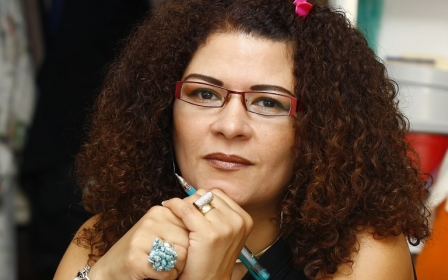Egyptian judge resigns live on air over 'impossible' reform of judiciary

A high-profile Egyptian judge resigned his position live on air over the weekend, saying it had become “impossible” to reform the country’s judicial system.
Speaking on a satellite television programme on Saturday night, Mohammed al-Suhaimi said he was resigning because of a dispute with the Justice Minister Ahmed Zind.
“Ahmed Zind is punishing me because I spoke to him in an inappropriate way…about the budget of the Judges’ Association," Suhaimi said on MBC Masr.
“Zind deals with us in a military fashion… I now feel that reforming the judicial system is impossible.”
Suhaimi claimed that he had been effectively demoted, sent to preside over a court hours from his family home, because of the disagreement.
“I should be able to say that I am duty-bound to the High Council of Judges; but unfortunately I am duty-bound to the Ministry of Justice," he said.
Suhaimi and Zind were previously known to be close, and used to work together at the Egyptian Judges’ Club, a national association for members of the judiciary.
Suhaimi’s public resignation has caused a storm in the Egyptian press, but has been rejected by the judiciary, according to his lawyer Hussein Abdel Rahman.
Zind was appointed last May after the resignation of his predecessor, Mahfouz Saber, who had declared that the sons of garbage collectors could not become judges, sparking a public uproar.
Zind caused controversy last week when he said that 400,000 supporters of the Muslim Brotherhood should be killed in revenge for slain army and police officers.
New MEE newsletter: Jerusalem Dispatch
Sign up to get the latest insights and analysis on Israel-Palestine, alongside Turkey Unpacked and other MEE newsletters
Middle East Eye delivers independent and unrivalled coverage and analysis of the Middle East, North Africa and beyond. To learn more about republishing this content and the associated fees, please fill out this form. More about MEE can be found here.




